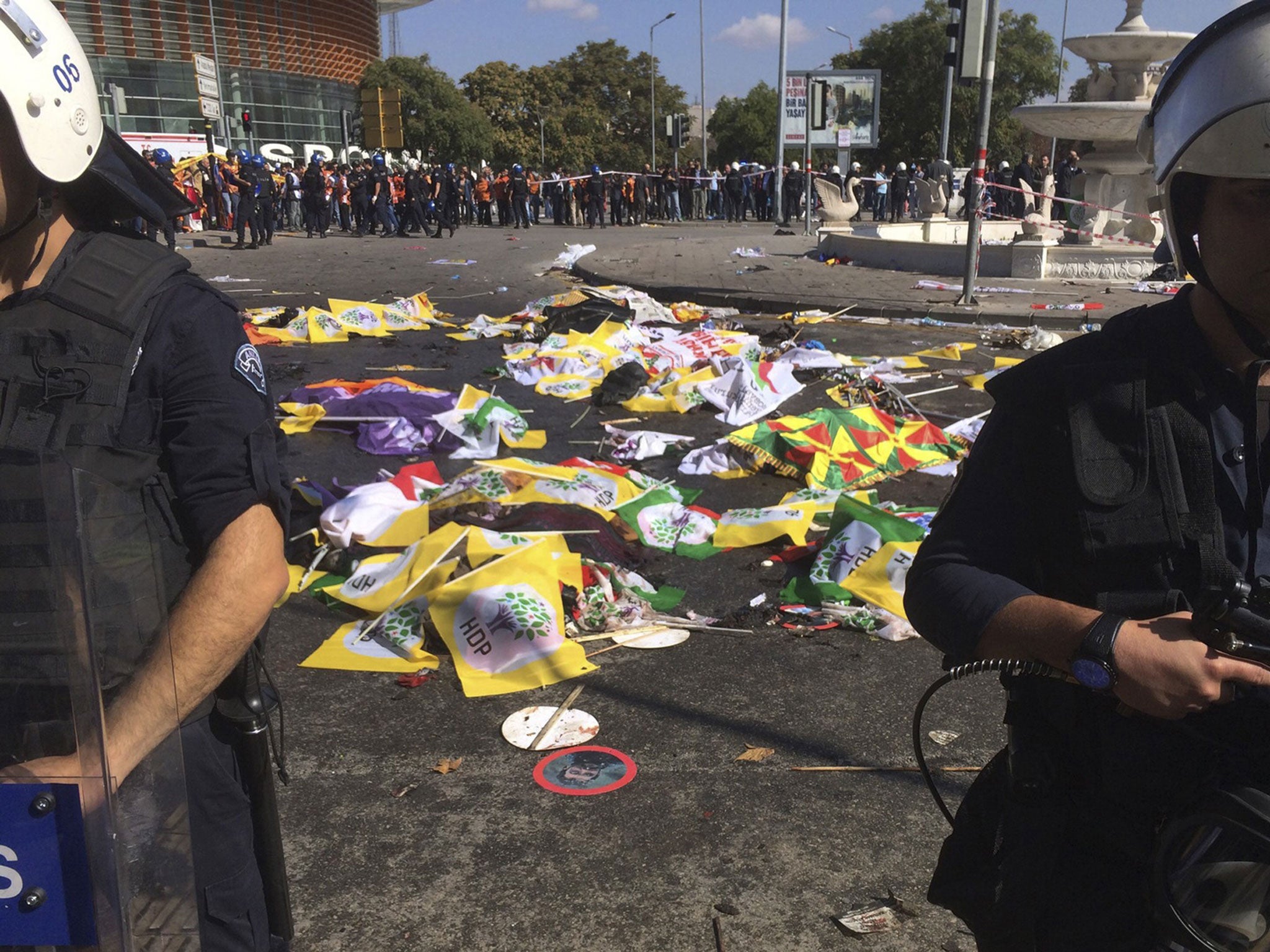Ankara terror attack: Turkey censors media coverage of bombings as Twitter and Facebook 'blocked'
The government has issued a ban on broadcasting footage of the blast at a peace rally

Your support helps us to tell the story
From reproductive rights to climate change to Big Tech, The Independent is on the ground when the story is developing. Whether it's investigating the financials of Elon Musk's pro-Trump PAC or producing our latest documentary, 'The A Word', which shines a light on the American women fighting for reproductive rights, we know how important it is to parse out the facts from the messaging.
At such a critical moment in US history, we need reporters on the ground. Your donation allows us to keep sending journalists to speak to both sides of the story.
The Independent is trusted by Americans across the entire political spectrum. And unlike many other quality news outlets, we choose not to lock Americans out of our reporting and analysis with paywalls. We believe quality journalism should be available to everyone, paid for by those who can afford it.
Your support makes all the difference.The Turkish government has censored news coverage of the terror attack in Ankara as Twitter and other social media sites went down across the country.
State media watchdog the Turkish Supreme Board of Radio and Television (RTÜK) imposed a ban on broadcasting images of the blast.
A statement by RTÜK released on its official website said that; “The Turkish Prime Minister has imposed a temporary broadcast ban regarding the terror attack conducted in Ankara this morning.”
A government spokesperson said the order covered images showing the moment of the blast, gruesome or bloody images or those “that create a feeling of panic”.
He warned media organisations they could face a “full blackout” if they did not comply.
Meanwhile, Turks reported that Twitter had been blocked on some of the country’s most popular networks, including Turkcell and TTNET.
Some people also said they were unable to access Facebook in the wake of the blasts.
Social media blackouts have been imposed with increasing frequency in Turkey in recent years, sparking protests and international criticism.
Index on Censorship classes the country as only “partly free” and the British Government has been among those raising concerns about blocks on social media and the treatment of journalists.
An award-winning Turkish journalist is being prosecuted for “insulting” the President and two Britons were among three Vice News journalists charged with “aiding a terrorist organisation” in August, prompting an intervention by the Foreign Secretary.
Anger was mounting at the government’s response to the bombing, which could be the deadliest terror attack in Turkey’s history.
Selami Altinok, the Interior Minister, refused to resign when questioned by journalists after the bombing and insisted that there were no security flaws.
Hundreds of people were gathering for a peace rally, organised by trade unions and supported by the pro-Kurdish People’s Democratic Party (HDP), when two explosions hit the crowd.
Footage showed a line of men and women holding hands while doing a traditional dance and singing as the explosions started, sending people screaming and running for cover.
They struck 50 metres apart as hundreds of people gathered near Ankara Central Station for a rally denouncing the violence between Turkish security forces and Kurdish militants.
In a statement, the HDP said it believed its supporters were the “main target of the attacks” and criticised police for allegedly tear gassing survivors who were trying to help the injured.
The health ministry put the death toll at 86, with at least 186 people wounded, by Saturday afternoon.
No group immediately claimed responsibility and authorities were investigating the possibility that the twin explosions were suicide bombs.
President Recep Tayyip Erdogan strongly condemned the “heinous attack” and said Turkey would not give in to efforts to cause division in society.
“No matter what its origin, aim or name, we are against any form of terrorist act or terrorist organisation,” he added.
“Like other acts of terror, the attack at Ankara Central Station is taking aim at our unity, brotherhood and future.“
Additional reporting by agencies
Join our commenting forum
Join thought-provoking conversations, follow other Independent readers and see their replies
Comments